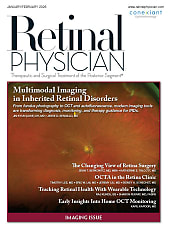Italian biotechnology company AAVantgarde Bio released early data from its gene therapy programs for 2 inherited retinal diseases at the Association for Research in Vision and Ophthalmology (ARVO) annual meeting in Salt Lake City, Utah.
Francesca Simonelli, MD, head of the ophthalmology unit at the University Hospital of Campania in Naples, presented 6-month data from the phase 1/2 LUCE-1 trial of AAVB-081, which targets retinitis pigmentosa in patients with Usher syndrome type 1B. The company reported no drug-related serious adverse events or dose-limiting toxicities among the first 8 participants, including the full low-dose group and 3 in the mid-dose group. Mild ocular inflammation was observed but resolved with steroid treatment. One participant showed notable vision improvement, with a gain of >1 line in best-corrected visual acuity and >3 lines in low-luminance visual acuity at day 180. Several patients showed positive trends in functional endpoints, according to the company.
A separate presentation by AAVantgarde’s chief medical officer, Jayashree Sahni, MD, highlighted preclinical findings from the company’s Stargardt disease program, AAVB-039. A non-human primate study evaluating the safety and pharmacokinetics of dual AAV8.ABCA4 administration via subretinal injection found no unexpected safety concerns. According to Dr. Sahni, the preclinical data support moving forward with a first-in-human clinical trial for Stargardt disease.
AAVantgarde’s gene therapy programs use proprietary dual AAV vector platforms designed to deliver large genes, addressing a known limitation of standard AAV technology. RP








